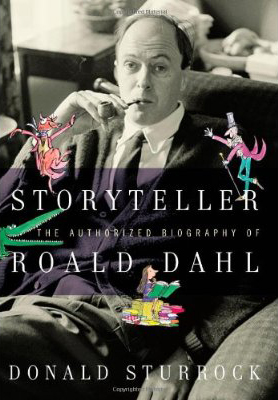Following the deaths this month of Brian Jacques, Janet Schulman, and Margaret K. McElderry, we turn to the last words of those who wrote for the young – Seuss, Dahl, Thurber, Montgomery, Nesbit, Charles M. Schulz, Crockett Johnson, and others.
“Yes. I’m not going to die tomorrow.”
– Dr. Seuss (Theodor Seuss Geisel, 1904-1991)
 “Ow, fuck!”
“Ow, fuck!”
– Roald Dahl (1916-1990)
“Oh, balls!”
– Crockett Johnson (David Johnson Leisk, 1906-1975)
“God bless… God damn.”
–Â James Thurber (1894-1961)
“It’s gone, Mother! Gone! Gone! Gone!”
– Winsor McCay (1867-1934)
“I love you.”
РHerg̩ (Georges Remi, 1907-1983)
“This copy is unfinished and never will be. It is in a terrible state because I made it when I had begun to suffer my terrible breakdown of 1940. It must end here. If any publishers wish to publish extracts from it under the terms of my will they must stop here. The tenth volume can never be copied and must not be made public during my lifetime. Parts of it are too terrible and would hurt people. I have lost my mind by spells and I do not dare think what I may do in those spells. May God forgive me and I hope everyone else will forgive me even if they cannot understand. My position is too awful to endure and nobody realizes it. What an end to a life in which I tried always to do my best.”
– L. M. Montgomery (1874-1942)
 “I have a poem coming with its form nebulous, but its content all arranged and a few really good lines done –Â it is for when I have (if I ever have) done it. (I have caught the Skipper. The D[octor] has come. I hope I can hold the pencil till the D. has gone. Still got him!)”
“I have a poem coming with its form nebulous, but its content all arranged and a few really good lines done –Â it is for when I have (if I ever have) done it. (I have caught the Skipper. The D[octor] has come. I hope I can hold the pencil till the D. has gone. Still got him!)”
– E. Nesbit (1858-1924)
“Keep going, finish your book.”
– Charles M. Schulz (1922-2000)
sources: Judith and Neil Morgan, Dr. Seuss & Mr. Geisel: A Biography (Random House, 1995), p. 287; Donald Sturrock, Storyteller: The Authorized Biography of Roald Dahl (Simon & Schuster, 2010), p. 561; Philip Nel, The Purple Crayon and a Hole to Dig: The Lives of Crockett Johnson and Ruth Krauss (University Press of Mississippi, 2012); Neil A. Grauer, Remember Laughter: A Life of James Thurber (University of Nebraska Press, 1995), p. 143; John Canemaker, Winsor McCay: His Life and Art, revised and expanded edition (Harry N. Abrams, 2005), p. 249; Pierre Assouline, Hergé: The Man Who Created Tintin, trans. Charles Ruas (Oxford University Press, 2009) p. 234; “The End of L. M. Montgomery’s Life,” The Anne of Green Gables and L.M. Montgomery Lexicon <http://www.lmm-anne.net/archives/2008/author/the-end-of-l-m-montgomerys-life.html>, 15 Feb. 2011; Julia Briggs, A Woman of Passion: The Life of E. Nesbit 1858-1924 (New Amsterdam Books, 1987), p. 393; David Michaelis, Schulz and Peanuts: A Biography (HarperCollins, 2007), p. 564.
notes: Not all biographies of children’s writers include last words. There are no last words in Leonard Marcus’s biography of Margaret Wise Brown, Barbara Stoney’s of Enid Blyton, nor Barbara Elleman’s of Virginia Lee Burton. Likewise, I don’t know Ruth Krauss’s last words, and so they’re not in my biography of her.

Amy Bennett-Zendzian
Philip Nel
Marc Tyler Nobleman
Pingback: Last Words and Final Regrets